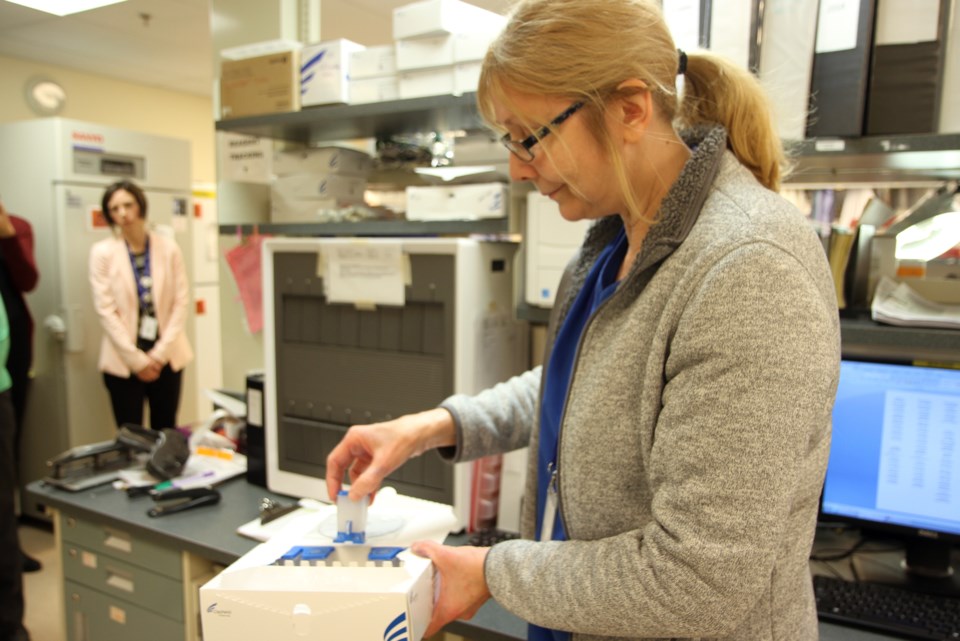THUNDER BAY – After seven months with a new bacteria analysis equipment, hospital officials announced Wednesday the changes have already increased patient care by allowing for rapid diagnosis of infectious disease.
Since April, the PCR equipment, as known as GeneXpert, has been in place at the Thunder Bay Regional Health Sciences Centre and officials say improvements are already being noticed in patient care.
Executive vice-president Rhonda Crocker Ellacott said the GeneXpert provides the hospital with the opportunity to provide a result, which previously took five days within one hour.
“Polymerase Chain Reaction testing means we can have the result within an hour,” Ellacott said Wednesday morning at the hospital.
“Instead of a patient having to go through the difficulty of gowning, gloving, and being in isolation, it means they can now be cleared within an hour and go into a regular room.”
The equipment is used to assess patients with antibiotic-resistant infections caused by the organisms MRSA (Methicillin-resistant Staphylococcus aureus) and VRE (Vancomycin-resistant Enterococci.)
Patients with these organisms would be placed in isolation to minimize the risk of transmitting the organism to another patient.
“We are clearing about 28,000 isolation days in the hospital,” Ellacott said. “We are saving a significant amount of supplies as well as the psychological and social impacts of being on isolation for patients and families.”
Ellacott said the machine has improved patient flow within the hospital, so instead of patients having to wait for the appropriate accommodation they are now cleared and can go wherever is best suited to them without having the isolation over their head.
The machine could accommodate more testing, but PCR testing is expensive.
“Right now, we are investing about $79,000 to do 700 tests and we will continue to make fiscal and patient care sense to expand service,” Ellacott said.
“This is state of the art testing and we are happy to have it here and it really means we are keeping up to standard and making sure patients are getting the best care and better overall patient care experience.”
Microbiology clinical coordinator Wendy Gouliquer said the equipment can detect small amounts of antimicrobial resisting bacteria.
“When you can detect smaller amounts, in the past we might have said the patient never had the bacteria, but now you can find the positive person before the bacteria gets spread from person-to-person,” Gouliquer said.
The process is simple.
Gouliquer said a nurse will collect a specimen from a patient, which gets sent down to the lab where it’s put into a cassette.
The cassette is placed into the equipment, and the testing multiplies the genetic material in the bacteria and it increases the amount until it can be detected.
Gouliquer said with the new equipment the hospital can provide a better quality of results by identifying the small amounts of bacteria than previously detected.
